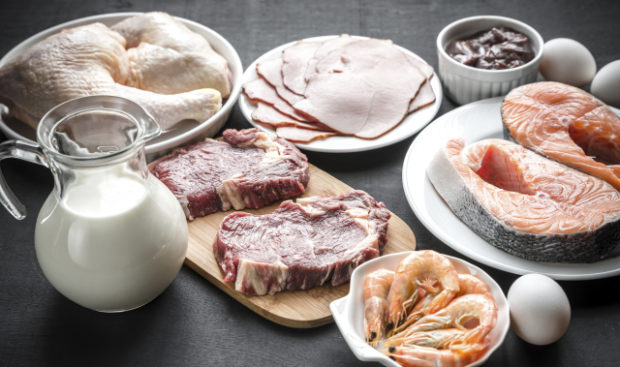
Image: AlexPro9500/Istock.com via AFP Relaxnews
New United States research has found that eating more than the recommended daily amount of protein could help women reduce their risk of a heart condition called atrial fibrillation (AFib), also referred to as a heart flutter.
Carried out by researchers at Stanford University, the new study looked at over 99,000 postmenopausal women who were all free of AFib at the beginning of the study.
The women were asked to complete food questionnaires as well as provide urine samples to confirm how much protein they ate. Using this data, the researchers could then classify the women into four groups based on their protein intake (<58 grams/day, 58 to 66 grams/day, 66 to 74 grams/day and >74 grams/day) before following the participants for an average of nearly ten years.
The findings, due to be presented at the American College of Cardiology’s Annual Scientific Session together with World Congress of Cardiology in March, showed that the women who ate 58 to 74 grams of protein a day were five to eight percent less likely to develop AFib, compared to the women who ate less protein.
The findings still held true even after the researchers had taken into account other possible risk factors such as body mass index, physical activity, tobacco and alcohol use and high blood pressure. However, there appeared to be no statistically significant benefit to eating more than 74 grams of protein a day.
Current U.S. guidelines recommend consuming 0.8 grams of protein per kilogram of bodyweight, which for a 140-pound person is about 51 grams per day. In the United Kingdom, the recommendation is even lower at 0.75 grams of protein per kilogram daily.
“Women with the lowest protein intake, which was roughly equivalent to the current recommended daily amount of protein in the U.S., had the highest incidence of AFib, and eating a little more was protective, even after taking into account other factors that can predispose someone to develop AFib,” said Dr. Daniel Gerber, the study’s lead author. “This modifiable risk factor for AFib may be a fairly easy way for women to potentially lower their risk.”
Gerber also added that women do not have to add that much more protein into their diets to reap the benefits.
“It’s not a huge amount, we’re talking about eating 10-20 more grams of protein per day — that’s only four ounces of healthy protein such as chicken breast or salmon, a cup of Greek yogurt or two eggs,” he said. “Of course, when we talk about increasing protein intake, it needs to be with heart-healthy foods and lean proteins, not with cheeseburgers and other foods that are high in saturated fat, cholesterol and sugar.”
AFib, also known as a heart flutter, is the most common heart rhythm disorder. The likelihood of developing the condition increases with age, and more than half of AF patients are aged 80 or older. Symptoms include chest pain, ‘racing’ or unusual heartbeat palpitations, weakness, fatigue, lightheadedness, dizziness and shortness of breath, and the condition increases the risk of stroke, other medical problems and death. JB
RELATED STORIES:
Spreading out protein intake throughout the day may help reduce muscle loss in seniors — study
Hot on the heels of beef-free hamburger, here comes pork-free sausage